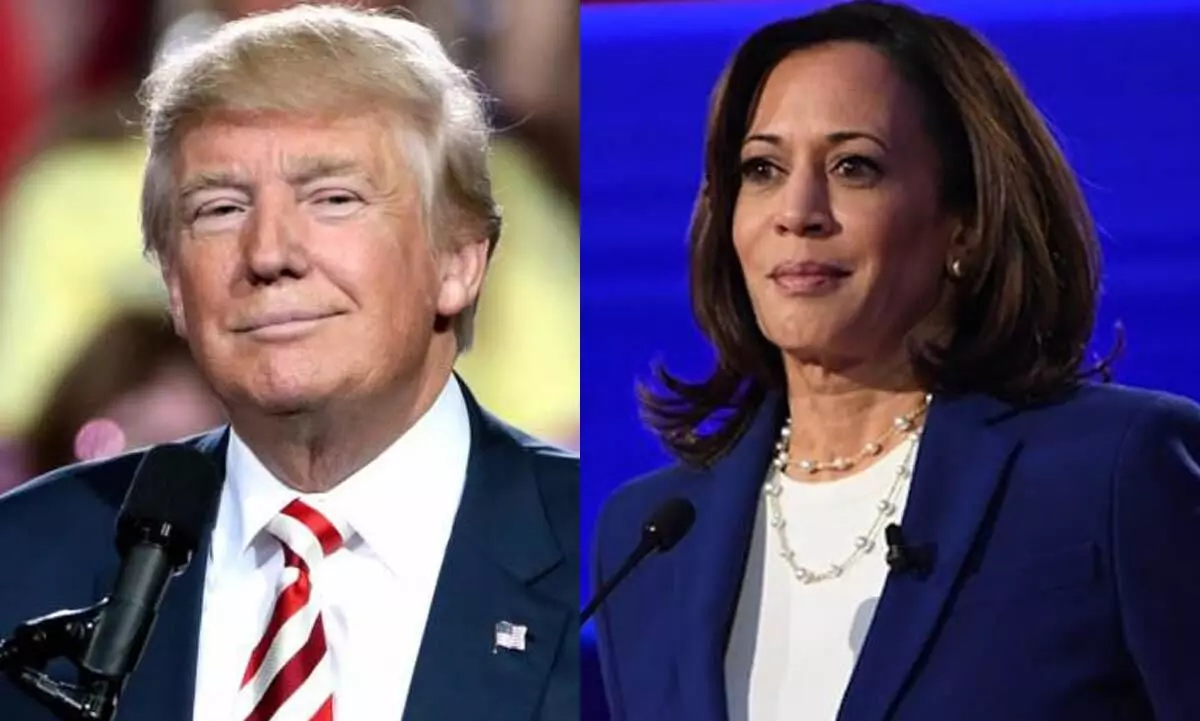
The Gaza effect: Kamala Harris, progressive voters, and the election fallout
text_fieldsDonald Trump, Kamala Harris
"I won’t vote for the Democrats because of the genocide in Gaza," declared John Mearsheimer, a prominent American political scientist renowned for his theory of offensive realism. His refusal encapsulates the intense frustration many Americans feel about the Democratic Party’s unwavering support for Israel, which alienated critical voter blocs and contributed to Trump’s surprising 2024 victory. For Vice President Kamala Harris, the Gaza issue proved decisive, particularly in swing states like Wisconsin and Michigan. Voters tried to convey their discontent until the last moments, but Harris seemed either arrogant or naively confident, dismissing warnings as inconsequential. Now, her support for what many deem genocide has ultimately cost her the presidency.
For many Muslim-Arab-progressive Americans, the situation in Gaza symbolized a grave moral line that Harris repeatedly crossed. As a Canadian teaching at an American law school, I encountered many who voiced anger, feeling utterly disregarded, though many stayed quiet in public. Initially inclined to support third-party candidates like Jill Stein or Cornel West or boycott the election, some eventually pivoted to Trump as he tailored his message, sensing an opening. Trump’s campaign made space for Arab and Muslim leaders and even acknowledged Arab and Muslim Americans in his victory speech—a stark contrast to Harris, who alienated the very voters she needed to secure the swing states.
In places like Dearborn, Michigan, which boasts one of the largest Arab American populations in the country, Trump made significant gains. Harris's campaign, however, refused to allow Palestinian voices at the Democratic National Convention and opted to send figures like Bill Clinton, Barack Obama and Liz Cheney to sway voters. This move backfired spectacularly. Clinton, speaking in Michigan, claimed Israel was "forced" to kill civilians in Gaza, a statement that outraged many voters. For them, this was yet another demonstration of the Democrats’ tone-deaf approach to the issue. Heena Lotus, a Michigan voter, summed up the community's sentiments: “They said they could do it without Muslims and Arabs, so we let them.”
Abbas Alawieh, a Michigan delegate and founder of the "uncommitted" movement, summed up this resentment, saying, "This is a watershed moment where Democrats across the country are saying, ‘Free Palestine.’” Alawieh, along with thousands of others, became a voice for those who felt abandoned. Despite his advocacy, the Harris campaign doubled down on its pro-Israel position, solidifying the “uncommitted” movement’s stance. Polls showed that, in swing states, pro-Palestinian voters increasingly viewed Harris's stance as unacceptable.
Trump’s messaging on the Middle East may have been inconsistent, but it resonated with disillusioned voters. While he emphasized his pro-Israel stance, he simultaneously criticized Harris for supporting “Muslim-hating warmongers” and spoke about ending "endless conflicts." Trump’s rhetoric didn’t need perfect consistency; it only required to contrast sharply with Harris’s stance, which increasingly appeared morally indefensible to pro-Palestinian and progressive voters. Many in Wisconsin and Michigan found Trump’s contradictory yet inclusive messaging more appealing than Harris’s dismissive silence on the atrocities in Gaza.
Harris's strategic oversight exceeded her failure to address the Gaza issue directly. She underestimated how deeply it would resonate with Americans beyond Arab and Muslim communities. The "Palestine voter"—a term capturing not only Arabs or Muslims but anyone attuned to the humanitarian crisis—became a real force in this election. Across age, race, and religious lines, younger and progressive voters saw Harris’s position as morally bankrupt, aligning more with what they believed to be a “lesser evil” in Trump. As Mearsheimer's sentiment suggested, many Americans found Harris’s policy stance intolerable, pushing them towards a candidate they might otherwise oppose.
Representatives Rashida Tlaib and Ilhan Omar's victories, both of whom have vocally condemned the situation in Gaza, underscore the power of this voter base. While the Democratic Party struggled in critical districts, Tlaib and Omar secured their seats with ease, demonstrating that the plight of Gazans mattered to many like Professor Mearsheimer, contrary to what the Harris campaign gambled.
Trump’s victory speaks to a broader failure within the Democratic Party to connect with its base. The Harris campaign’s dismissal of progressives and Arab and Muslim voters and failure to address the humanitarian crisis in Gaza ultimately proved costly.
Faisal Kutty is a Toronto-based lawyer and regular contributor to The Toronto Star. His articles also appear in Newsweek, Aljazeera, Zeteo, and Middle East Eye. You can follow him on X @faisalkutty)





